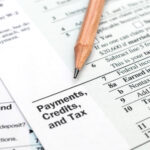By Terry Barrett, CPA, Tax Senior Manager

Overview of Virginia Income Tax Law Conformity and Deconformity Provisions
On Monday, March 15, 2021, Governor Northam signed legislation to advance the date of conformity of Virginia’s tax code to the U.S. Internal Revenue Code from December 31, 2019, to December 31, 2020. As a result of the bill’s emergency clause, conformity is effective immediately. The complexities presented by federal COVID-19-related relief made 2021’s conformity process especially challenging and drawn-out.
Virginia now generally conforms to the provisions of the Coronavirus Aid, Relief, and Economic Security (“CARES”) Act and the Consolidated Appropriations Act of 2021 (the “CAA”) with certain exceptions. The following highlights some of the provisions where Virginia conforms and deconforms with federal law.
Mix of Conformity and Deconformity
Virginia Loan Forgiveness and Business Expense Deductions
While Virginia conforms to the federal tax exemption for Taxable Year 2020 for Paycheck Protection Program (“PPP”) loan forgiveness and certain funding received under the Economic Injury Disaster Loan (“EIDL”) program, it does not conform to the provisions allowing taxpayers to claim a full deduction for business expenses funded by forgiven PPP loans. Rather, for Taxable Year 2020 Virginia limits the deduction for such business expenses for individuals and corporations who received PPP loan forgiveness to the amount of the loan if for $100,000 or less, or a maximum of $100,000 for loans in excess of $100,000. For pass-through-entities, the $100,000 limitation applies at the entity level.
Again, it is noteworthy for Taxable Year 2020, the deduction of business expenses is limited to PPP loan forgiveness. The deduction of business expenses does not extend to EIDL funding.
Special Provisions Relating to Rebuild Virginia Grants
For federal income tax purposes generally grants received by a business must be included in income unless a specific exclusion applies. Virginia generally conforms to this. However, while grants received by Virginia taxpayers through the Rebuild Virginia Grant program are taxable for federal income tax purposes Virginia will allow an individual and corporate income tax subtraction for up to $100,000 of Rebuild Virginia grants received by a taxpayer during Taxable Year 2020. For pass-through entities, the subtraction will apply at the entity level. Rebuild Virginia Grants in excess of $100,000 will be considered taxable income in Virginia but only for the amount in excess of $100,000.
Conformity Provisions
Virginia will conform to most U.S. Internal Revenue Code provisions through December 31, 2020, including:
- COVID-19-related retirement distributions
- Above-the-line charitable contributions deduction
- Deduction limitations for certain charitable contributions
- Exclusion of educational payments
- Extension of the $300 deduction for non-itemizers to taxable year 2021
- Enhancing the charitable deduction for individuals for certain contributions
- Temporary full business meals deduction
- Extension of exclusion for certain employer payments of student loans
- Depreciation of certain residential rental property over a 30-year period
- Temporary enhancement of the EITC
- Repeal of the deduction for qualified tuition
Deconformity Provisions
Virginia will not conform to the following:
- Extension of the 7.5% floor in the medical expense deduction (Virginia uses a 10% floor)
- Provisions of the federal Coronavirus Aid, Relief, and Economic Security (CARES) Act related to:
- Net operating loss (NOL) limitations and carryback
- Excess business losses for noncorporate taxpayers
- Business interest deduction limitations
In addition, Virginia will continue to deconform to the following provisions of federal law where it traditionally has deconformed:
- Bonus depreciation allowed for certain assets under federal income taxation;
- Five-year carry back of certain net operating losses (“NOLs”) generated in Taxable Years 2008 and 2009;
- Tax exclusions related to cancellation of debt income;
- Tax deductions related to the application of the applicable high yield debt obligation rules; and
- Suspension of the “Pease limitation” – the federal overall limitation on itemized deductions.
The Department of Taxation has issued more detailed guidance on the conformity legislation in Tax Bulletin 21-4.
Keiter continues to monitor tax and COVID-19 legislation affecting Virginia businesses and individual taxpayers. If you have questions on Virginia tax conformity and how it impacts you please contact us. We can help. Keiter Representative | Email | 804.747.0000
Additional Tax Resources for Virginia Businesses
Disclaimer: This content has been prepared for general guidance and informational purposes only based on the date published.
The FFCRA, CARES Act, and SBA Paycheck Protection Program (PPP) are continually releasing new guidance that may change the information provided within this content. Keiter recommends that you perform your own independent research and/or speak with a qualified accounting professional before making any financial business decisions. © 2021 Keiter, All Rights Reserved.
About the Author
The information contained within this article is provided for informational purposes only and is current as of the date published. Online readers are advised not to act upon this information without seeking the service of a professional accountant, as this article is not a substitute for obtaining accounting, tax, or financial advice from a professional accountant.



